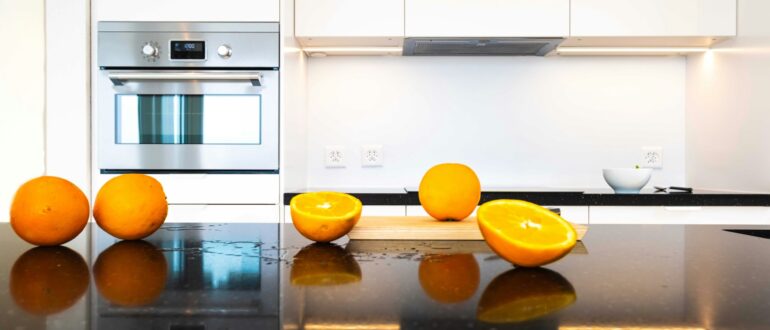Planning Your Kitchen Renovation
Embarking on a kitchen renovation in Dubai requires meticulous planning to ensure the project meets both aesthetic and functional needs. The first step is to set a realistic budget, which serves as a blueprint for what can be achieved. Evaluating all potential costs—including materials, labor, and permits—can help in establishing a clear financial outline. It is essential to include an additional 10-15% for unforeseen expenses that may arise throughout the renovation process.
Determining the scope of the project is equally important. Are you looking to perform a complete overhaul or simply update specific elements like cabinets or countertops? Assessing this will affect your time frame and budget. Additionally, it is beneficial to research the various styles and layouts that resonate with your vision for the kitchen space. Whether opting for contemporary minimalism, rustic charm, or traditional elegance, the chosen style should harmonize with the overall design of your home.
In Dubai, understanding local regulations and acquiring the necessary permits cannot be overlooked. Building codes and zoning laws may dictate specific requirements that must be adhered to. Consulting with local authorities or professionals who specialize in renovations can provide insights into these regulations to avoid potential setbacks.
Another significant step in the planning phase is creating a wish list of desired features and appliances. Consider practical elements such as storage solutions, lighting, and quality kitchen fixtures that enhance functionality. Selecting energy-efficient appliances not only modernizes your kitchen but also aligns with sustainability goals.
Lastly, engaging a designer or architect can provide expert guidance through the planning process. Professionals have the expertise to visualize your ideas and bring them to life while ensuring compliance with all regulations. Their experience can turn your dream kitchen into a reality, tailored to your personal style and needs.
Choosing Materials and Appliances
When embarking on a kitchen renovation in Dubai, selecting the right materials and appliances is crucial for both functionality and aesthetics. The extreme climate conditions necessitate materials that can withstand heat and humidity, while also offering durability and ease of maintenance. One common choice for countertops is quartz, known for its non-porous nature and resistance to stains, making it ideal for a busy kitchen environment. For those seeking a more natural look, granite and marble can also be excellent choices, albeit with attention paid to their sealing and maintenance to endure Dubai’s climate.
Cabinets play a significant role in kitchen design as well. Laminated MDF and plywood are popular due to their resistance to warping and ease of cleaning. Additionally, opting for finishes that reflect light can make your kitchen feel more spacious, an essential consideration in smaller layouts. Flooring options should be carefully considered too; porcelain tiles are not only stylish but also extremely resilient against moisture and temperature fluctuations, making them suitable for the heat prevalent in Dubai.
Backsplashes offer an opportunity to add a splash of personality to the kitchen. Ceramic tiles or glass backsplashes are easy to clean and can withstand high temperatures, ensuring longevity and style. When it comes to appliances, selecting energy-efficient models is essential, both for environmental sustainability and cost-effectiveness in energy consumption. Brands that offer smart technology can enhance convenience, allowing homeowners to control their appliances remotely or through voice commands, thus integrating modern convenience into traditional cooking.
Sourcing materials from local suppliers can proved beneficial by reducing costs and ensuring faster delivery. Having a good understanding of warranties and maintenance requirements is also vital in making informed decisions, as these factors can significantly affect the longevity of your kitchen renovation. Spending adequate time on this stage ensures the kitchen not only meets aesthetic aspirations but also performs optimally within the unique setting of Dubai.
Executing the Renovation Process
Once the planning and design phases of your kitchen renovation in Dubai are complete, the execution stage begins. This phase is critical and requires the involvement of reliable contractors who specialize in kitchen renovations. Selecting the right professionals can make a significant difference in the success of the project, as their expertise will ensure the work is performed to a high standard, complying with local regulations and safety codes.
The first step in the execution process typically involves demolition. This phase may include tearing down old cabinetry, removing appliances, and possibly altering existing plumbing or structural elements to accommodate the new layout. It is essential to oversee this phase closely, ensuring that all work is completed safely and efficiently. During demolition, you may encounter unexpected challenges, such as hidden damage that needs to be addressed before proceeding.
Following demolition, the next steps include the installation of cabinetry and appliances. It is crucial at this stage to maintain clear communication with your contractors to ensure that timelines are being adhered to and any adjustments are made promptly. The installation of cabinetry sets the tone for the overall design, and it is important to verify that each piece is correctly aligned and securely fitted.
Additionally, plumbing and electrical work play a significant role in executing a successful kitchen renovation. Engaging licensed professionals for these tasks is highly recommended, as they possess the necessary skills to install plumbing fixtures, gas lines, and electrical outlets safely. This should also be scheduled carefully to align with the overall timeline of the project.
Finally, as the execution phase nears completion, attention shifts to the finishing touches. This includes the installation of lighting fixtures that enhance functionality and ambiance, as well as decorative elements that personalize the space. Well-planned renovations culminate in a kitchen that is not only aesthetically pleasing but also highly functional, meeting the needs of its users. Achieving this balance requires adaptability and foresight throughout the renovation process.




Comments 0